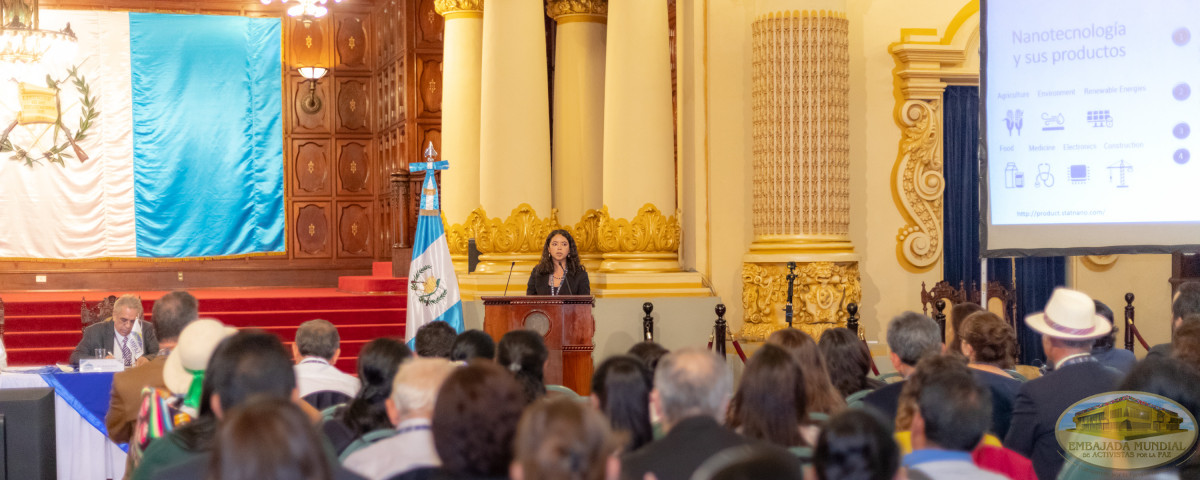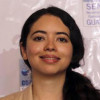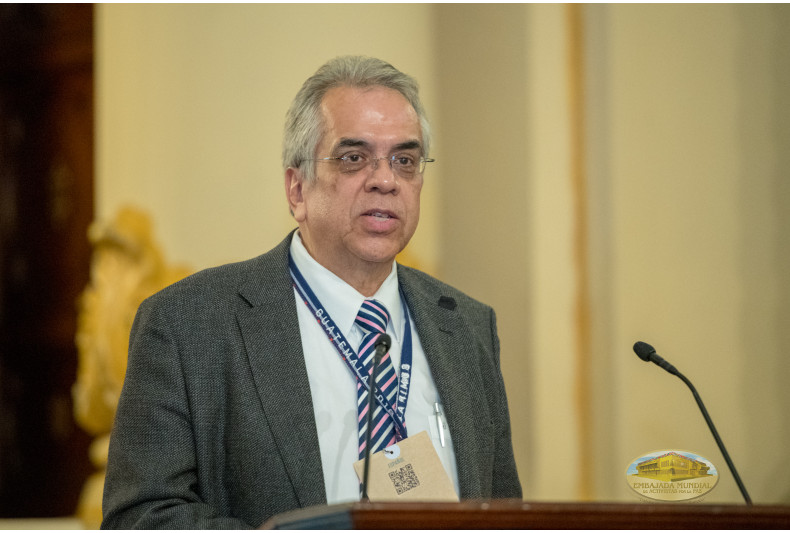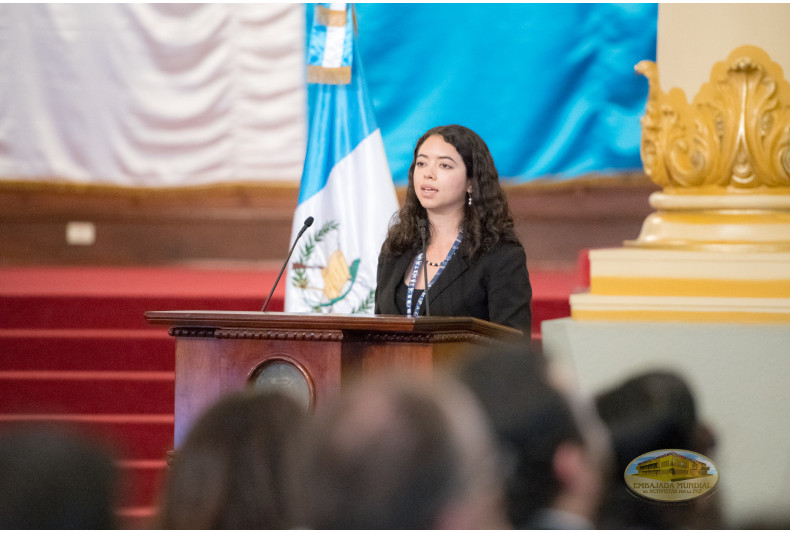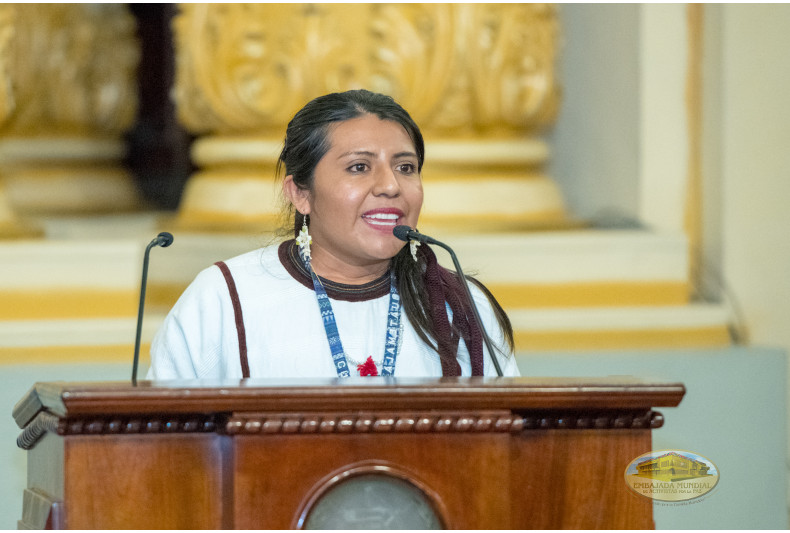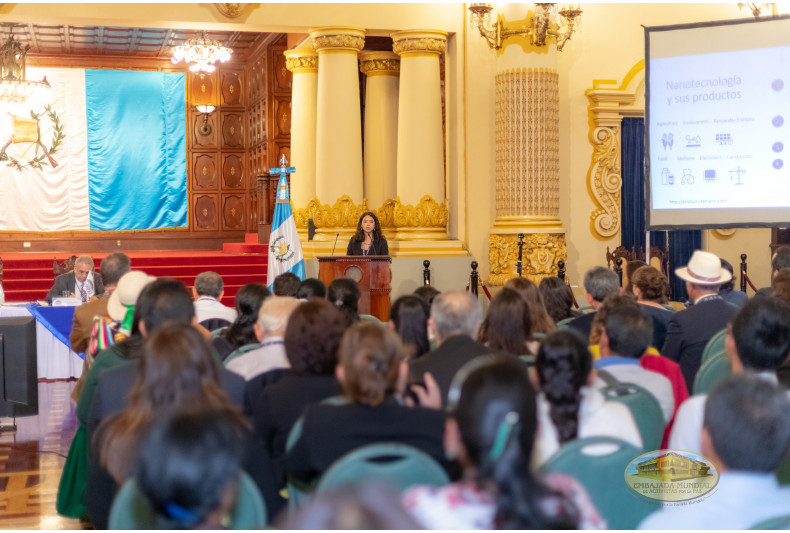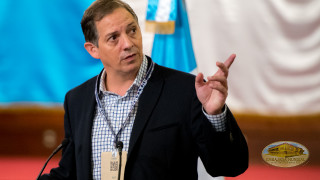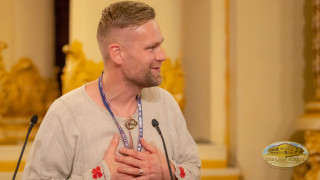Science and technology tools for sustainable development
See GalleryThe second thematic axis of the Science Session for the preservation of life of Mother Earth and of the human being, was formed by panel: Women in Science. This space counted with the participation of Tania Martínez, winner of the Youth Award in Mexico, and doctor in Nanotechnology, Susana Arrechea, of Guatemala.
This meeting was held with the purpose of recognizing indigenous scientific, technological and ancestral knowledge as a fundamental instrument for the welfare of humanity and the environment.
The presentation of the panel was directed by Arturo Solís Herrera. The speakers presented initiatives and viable actions, aimed at strengthening the integral peace and happiness of each individual, as well as the promotion and defense of human rights in harmony with Mother Earth.
Food safety
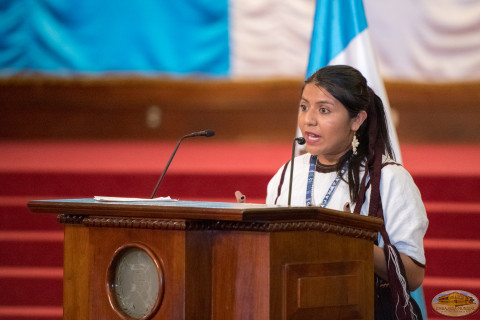 "Biosystems specializing in irrigation and the production of biofuels", was the theme of Tania Martínez's exhibition, the Youth of Mexico Award. In the development of his presentation, she spoke about the initiatives that some Mexican communities have taken in the search for food safety.
"Biosystems specializing in irrigation and the production of biofuels", was the theme of Tania Martínez's exhibition, the Youth of Mexico Award. In the development of his presentation, she spoke about the initiatives that some Mexican communities have taken in the search for food safety.These initiatives, developed with the guidance of specialists, ranged from the selection and improvement of seeds of corn, the implementation of irrigation systems, to the optimization of plantings.
He also commented that currently, farmers returned to be self-sufficient because of the 300 kilograms of corn that they initially harvested, and have managed to collect nearly a ton, with the use of native seeds.
Martínez mentioned that public policies have been oriented to a type of technology, but spaces should be created where there are other alternatives, such as samples of native seeds that are part of the people’s biocultural diversity.
Nanotechnology
Susan Arrechea, doctor in Nanotenology, addressed the topic "Energy, nanotechnology and waste management". During her speech, she commented that nanotechnology is being applied to this renewable and affordable energy revolution, as stated in the objective of sustainable development No. 7.
At present, there are 8,412 products manufactured with nanotechnology and more than 2,000 companies in 56 countries that distribute them.
Arrechae said that you can see the progress in the developing materials for photovoltaics, renewable energy for the treatment of water and medicines, packaged foods, cell phones, computers and more and more products.
Through nanotechnology, for example, projects for the sustainability of communities are being implemented with an emphasis on firewood stoves. Also, at the University of San Carlos de Guatemala, research programs oriented towards sustainable development are carried out.
“Arrechea recommended: "We must use science and technology as a tool for sustainable development and for the integration of peace."
